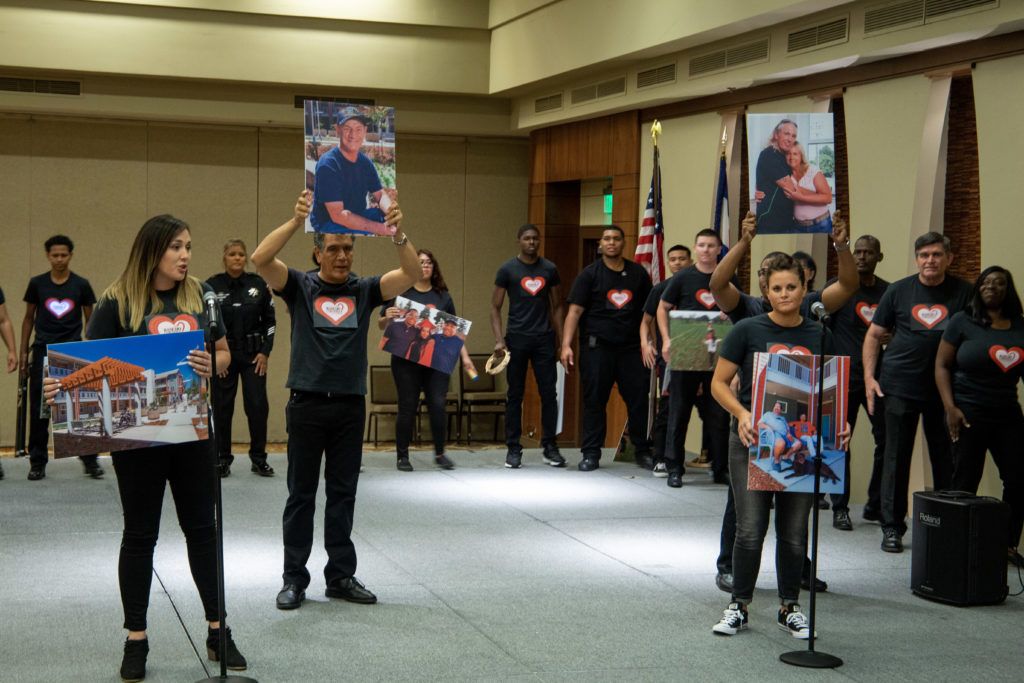Project at a Glance
- Issue Area Community vision and values, Housing, Social services, Workforce development/Adult education
- Engagement Approaches Commissions/taskforces, Engagement through art, Engaging traditionally marginalized groups, Partnering with residents
This content is available to members only. Members, please log in below to view! Not a member? Join us now to unlock this and other exceptional content.
Mather Veterans Village
Rationale:
Sacramento County reports 93,000 veterans live in the Sacramento region, which includes Rancho Cordova. Sacramento County has the 10th highest number of homeless veterans among California counties. During a count in January 2017, 13 percent of the homeless population were veterans, up 5 percent from 2015.
Even so, housing to support the unique needs of homeless and disabled veterans was virtually non-existent.
Goal:
Create a village dedicated to the care and housing of veterans.
Project Summary:
Rancho Cordova city staff began exploring the feasibility of creating a village dedicated to the care and housing of veterans. The project flourished into a partnership between four cross-sector collaborators: The City of Rancho Cordova, Mercy Housing California, Veterans Resource Centers of America, and Sacramento County. Many organizations collaborated to cobble together needed funding. In addition to the four proponents, state and federal agencies, private businesses, and nonprofits rallied as well.
With funding secured, it was time to design and build. The plan was to construct Mather Veterans Village (MVV) in three phases on 3.65 acres at the former Mather Air Force Base, just two blocks from the Northern California Veterans Administration Medical Center. MVV Phase I included permanent supportive homes for 50 homeless veterans and their families. This new, three-story development with 44 one-bedroom and 6 two-bedroom homes exceeds California’s energy and water usage standards by incorporating drought-tolerant landscaping, drip irrigation by onsite gray water, and solar panels that power both the hot water system and electricity.
Features of Phase I would make anyone feel proud to live there and included:
- Apartment homes with energy-efficient appliances and fixtures
- Community room with kitchen and lounge area
- Meeting rooms and offices for supportive services staff
- Computer lab and laundry facilities
A collaboration of providers offers comprehensive on-site services including:
- Health care and wellness programs
- Veterans benefit claims assistance
- Substance abuse counseling and support groups
- Employment services
- Sacramento Food Bank & Family Services food deliveries
- Social activities
Phase II will be the supportive services and transitional housing component of the overall project. This will house homeless veterans who are not yet ready to live independently. It will include a 46-bed transitional housing program, supportive service programs and administrative offices, a commercial kitchen, and a chef to provide three healthy meals to residents each day.
Phase III will consist of an additional 50 permanent supportive homes for homeless veterans and their families. The building will consist of 44 one-bedroom and 6 two-bedroom environmentally sensitive homes.
Since the grand opening, the community has stepped forward in a variety of ways. Whisker Warriors volunteers collect pet food and deliver it to veterans who are comforted by a dog or cat companion. Leadership Rancho Cordova volunteers erected patriotic bike racks for use by residents. Local artists have enhanced the grounds with inspiring mosaics and murals, and faith leaders make themselves available for counsel and support.
Engagement Strategies:
- The project was a collaboration of several stakeholders from government, private and non-profit sectors
- The community rallied behind the project by offering additional volunteer services after the grand opening.
Outcomes:
- 50 formerly homeless veterans and their families are living at MVV.
- When Phases II and III open, 57 transitional beds for veterans not yet ready to live independently will be filled.
- 50 permanent supportive homes will be built and filled.
- Since 2016, 10 veterans have found employment, stabilized and moved to other homes, making room for additional veterans to access Mather Veterans Village.
- It is anticipated that MVV will serve 10,500 veterans over the next 50 years.
Additional Resources:
Rancho Cordova, CA- 2019 AAC Winner: Presentation
Local Contact:
Kendra Barter and Joe Millsap
Veterans Resource Centers of America
Mather Veterans Village
(916) 273-8947
KBarter@vetsresource.org
jmillsap@vetsresource.org

Explore More Innovations From Communities Across the Country and Down the Road
See All ProjectsThank You to Our Key Partners




